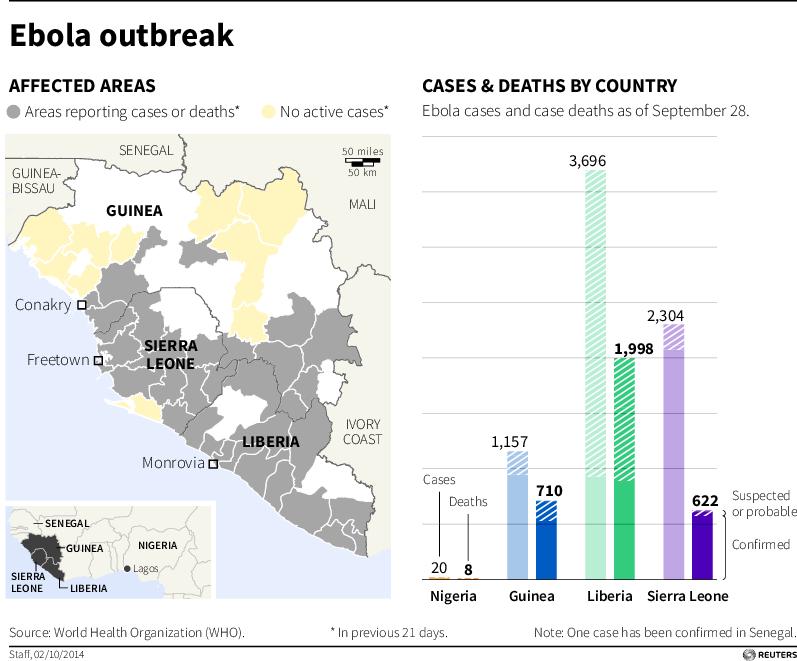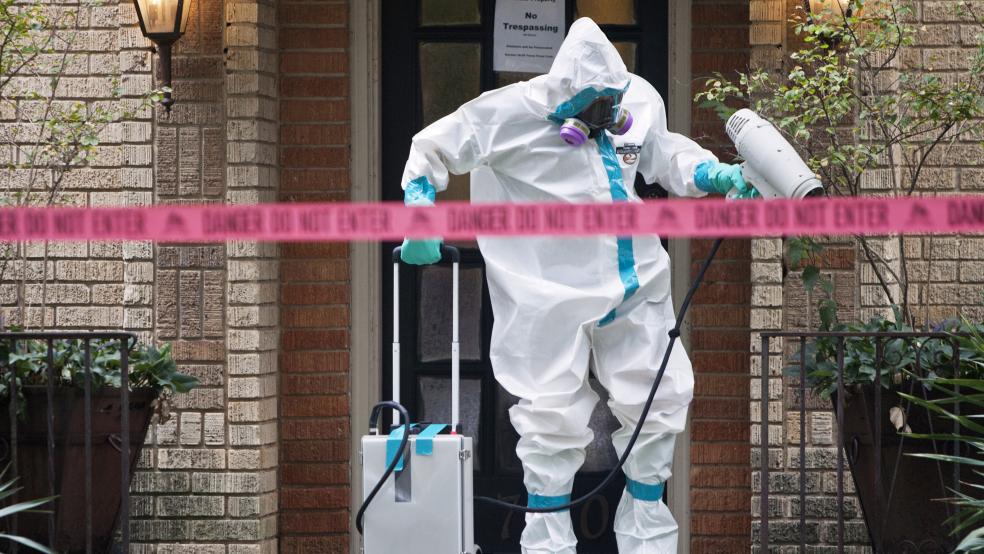The White House has had a series of incompetent episodes in its second term that have transformed President Barack Obama from a re-election winner to the nadir of his public support in less than two years.
The exposure of the NSA and IRS scandals, the 2013 retreat on Syria’s use of chemical weapons, the widespread failure of Obamacare insurance exchanges, and then the casual dismissal of ISIS as it conducted a genocidal sweep across Syria and Iraq. In its wake went much of Obama’s credibility on foreign policy and confidence in his leadership.
Related: Obama Is Rising a U.S. Ebola Outbreak for His Own Ambitions
The last thing this administration needed was another crisis. In an election cycle that features few issues other than Obama’s own policies – as the President himself helpfully admitted last week – another bungled response would only make the leadership deficit more acute. The emergence of Ebola in Dallas, Texas, and the CDC’s failure to control the situation, has added yet another brick to the load weighing down Democrats in this cycle.
In one sense, though, the Obama administration has been at the mercy of a difficult set of circumstances. Thanks to the transmission patterns of the virus, carriers are not immediately symptomatic.
When the Ebola outbreak in western Africa began grabbing headlines, some suggested that individual screening would not be effective because of the 21-day incubation period. Concern heightened when two American healthcare workers contracted the disease while in Africa and returned to the U.S. for treatment (both survived).

The White House refused to consider the alternative, a travel ban from countries that had Ebola outbreaks. Josh Earnest told the press on October 1, after Duncan was diagnosed with the infection in Dallas, that the administration would not consider a temporary travel ban, and that the US could prevent a “wide spread of Ebola.”
Related: How ISIS Terrorists Forced Obama Out of Retirement
Earnest also promised that the Centers for Disease Control would “protect the broader American public by rigorously applying the kind of medical protocols” recommended by the CDC when the disease did appear. “These are the experts,” Earnest insisted.
If so, then the experts have gotten off to a rough start. Duncan had initially come to the Texas Presbyterian Hospital with a fever and Ebola symptoms, and had told the staff he recently traveled to Africa. They sent him home, only to have his frightened family call for an ambulance a few days later when he became too sick to get back to the hospital.
Even at that stage, no one communicated the proper protocols to the hospital staff, according to a union representative for the nurses. There were “no protocols” given to the nurses by the CDC or anyone else; they had to make up protocols as they went along, with toxic medical waste piling up to the ceiling. For the first two days, they didn’t even have the proper hazmat suits needed for infectious-disease protection while caring for Duncan.
Under those circumstances, the infection of two members of Duncan’s care team should not surprise anyone. The first young nurse self-identified the infection and got herself into isolation over the weekend. The CDC confirmed it as an Ebola case on Sunday morning. By that time, the CDC had been monitoring dozens of people who had come into contact with Duncan as potential cases for contagion, and yet somehow one nurse had flown to Cleveland from Dallas on Friday.
Related: Obama’s Dismal Performance Is His Personal Failure
More than a day after the first nurse’s case of Ebola had been confirmed and the agency realized that containment had definitely been breached, the CDC did nothing as the other nurse flew back to Dallas on a commercial flight with over 130 other passengers and crew on board – no less.
It doesn’t take “experts” to realize that high-risk potential cases of Ebola shouldn’t board flights or use any other kind of public transportation, especially after a containment breach has been verified. Only after this information came out did CDC director Thomas Frieden announce that no other people being monitored would be allowed to board commercial aircraft.
The experts never considered that an issue, apparently. Even after that, the CDC asked people on the flight to contact them, rather than getting the passenger manifest from the airline and tracking down the passengers themselves. These are people who may have been exposed and who could carry the infections further over the next several weeks.
Related: Why Obama Should Never Have Sent Troops to Fight Ebola
None of this instills confidence in this administration’s ability to deal with one single outbreak point. What happens when more come? The Washington Post/ABC News poll shows that two-thirds of Americans want a ban on travel from Ebola-linked countries until the outbreak subsides, and it’s not difficult to understand why. With just one case, we have two transmissions and potentially over 200 more, thanks to a slow response from the healthcare center and the CDC’s inability to keep a monitored high-risk case from boarding a commercial flight to Cleveland and back.
The White House insisted yesterday that no such travel ban would be forthcoming, but the crisis has rattled Obama enough to cancel a fundraising trip and stick around for a Cabinet meeting. Right now, the crisis is still very manageable, but only as long as they can contain the Dallas outbreak and hope another plane with visitors from western Africa does not bring another Patient Zero to America. Obama and his advisers should consider a travel ban as a necessary first step to prevent that – and perhaps to restore a little bit of confidence in their leadership.
Top Reads from The Fiscal Times:
- The Merger of ISIS and al-Qaeda Could Cripple the Civilized World
- Obama Reneges on Transparency Pledge Over Air Force One
- Ebola Patient Needs $500,000 to Cover Medical Bills






